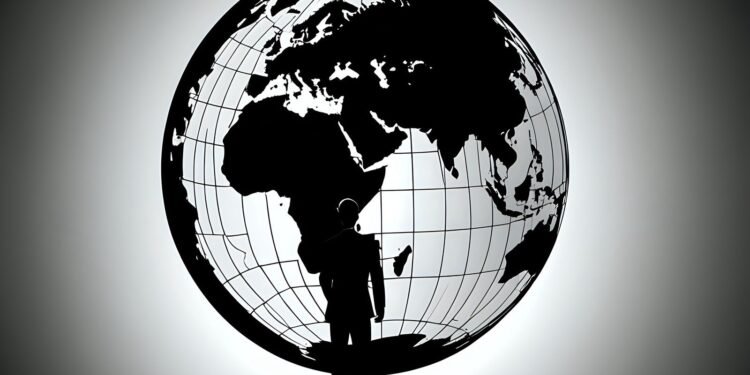The Biggest Lie: Unpacking Western Prosperity and Global Inequality
The narrative of Western prosperity often perpetuates several misconceptions that obscure the underlying factors contributing to global inequality. These misconceptions shape our understanding of poverty, wealth, and power dynamics, leading to a skewed perception of why some countries thrive while others struggle. Here, we unpack three of the biggest lies that have been told about Western prosperity and the reality behind them.
Lie #1: Poor Countries Are Poor Because of Corrupt Leaders
The Role of Western Influence
A common explanation for the poverty in many countries is the corruption of their leaders. However, this narrative often neglects the crucial role of Western powers in shaping the political landscapes of these nations. Many of these leaders came to power with the help, or at least the acquiescence, of Western countries, often to serve geopolitical or economic interests.
Key Points:
- Colonial Legacy: The borders and governance structures of many poor countries were established during the colonial era, often without regard for ethnic, cultural, or political realities. This has led to internal conflicts and instability.
- Cold War Politics: During the Cold War, Western powers frequently supported authoritarian regimes to counter perceived communist threats, regardless of these regimes’ commitment to democracy or human rights.
- Economic Dependence: Many developing countries remain economically dependent on Western nations, with leaders often prioritizing foreign interests to secure aid, loans, or favorable trade terms.
Lie #2: Money Makes the World Go Round
The Illusion of Value
Another pervasive lie is the belief that money has intrinsic value and is the fundamental driver of the global economy. In reality, money is a social construct, a system of trust and faith in the value of currency. Its worth is determined by collective agreement and the stability of the issuing government.
Key Points:
- Fiat Currency: Most modern currencies are fiat money, meaning they have value because governments decree it and people trust that value. Unlike gold or silver, fiat money has no intrinsic worth.
- Economic Systems: The power of money lies in the economic systems and policies that govern its use. These systems can perpetuate inequality, as those with capital have the means to generate more wealth, often at the expense of those without.
- Wealth Disparity: The global financial system is designed in a way that favors wealth accumulation for the few, leading to vast disparities in income and opportunity.
Lie #3: The Western World is a Bastion of Freedom and Democracy
The Exploitation Behind Prosperity
The Western narrative of freedom and democracy often omits the historical and ongoing exploitation that has contributed to its prosperity. From colonial exploitation to modern-day economic practices, Western nations have built wealth through the extraction of resources and labor from other parts of the world.
Key Points:
- Colonial Exploitation: European powers amassed wealth through the colonization of Africa, Asia, and the Americas, extracting natural resources and exploiting local populations for labor.
- Neo-Colonialism: In the post-colonial era, many Western countries continue to exert economic and political influence over former colonies, often through international institutions and trade agreements that favor Western interests.
- Resource Control: Control over global resources, including oil, minerals, and agricultural products, remains a key factor in maintaining Western economic dominance. This control often involves supporting regimes and practices that are detrimental to local populations.
Understanding the Lies to Reveal the Truth
Global Inequality and Power Dynamics
Understanding these lies about Western prosperity reveals the complex interplay of historical, political, and economic factors that contribute to global inequality. It highlights the need to critically examine the narratives we are presented with and to seek a more nuanced understanding of how wealth and power are distributed globally.
Moving Towards Equity
To address global inequality, it is crucial to:
- Acknowledge Historical Injustices: Recognize the impact of colonialism and exploitation on current global disparities.
- Promote Fair Economic Practices: Advocate for trade policies and economic systems that prioritize equitable development and resource distribution.
- Support True Democratic Governance: Encourage and support governance systems that are truly democratic and accountable to their populations, free from external manipulation.
Thought-Provoking Questions
- How can we reshape global economic policies to reduce inequality and promote fair development?
- What steps can be taken to address the historical injustices that continue to impact poor countries today?
- How can individuals and communities contribute to a more accurate understanding of global power dynamics and their effects on prosperity?



